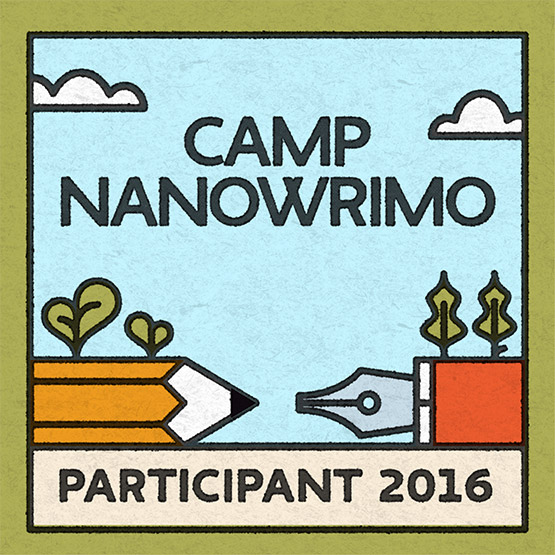As many of you may know, November is National Novel Writing Month. (Note: the link may not work for a few days as the website is being prepared.) Thousands of people from over the globe lock themselves to their computers and write at least 50,000 words towards a novel. The excitement towards the end of October is palpable. It is like being at the start of a horse race, ready for the bell to go off. The horses are dancing and pawing, the riders are tense. Everyone is talking in excited whispers. It is a thrill!
If you are thinking about joining in, but aren’t sure, I’ll share some of my own NaNoWriMo musings.
5 great reasons to participate:
1. The feeling of being part of a huge community of writers all trying to accomplish the same goal in their own way is exhilarating. Trying to do the seemingly impossible adds to the adrenaline rush.
2. If you are lucky, you will find writing time in nooks and crannies of your day where you hadn’t considered to look. You may push yourself to new word counts at rates you never thought possible. The cool badges put your word counts out there for everyone to see.
3. You may learn more about your craft. If you have never written a novel before, you will definitely learn more about crafting a plot, developing characters, dialogue and hundreds of other writing intangibles, such as the fact your characters will develop minds of their own and fly off in unexpected ways.
4. You create your very own novel!
5. NaNoWriMo may lead to many positive outcomes, regardless of what happens with your novel. In my case, I started a personal blog to record my thoughts on the writing process as I went along (you can find a link to it on the about page of this blog). That personal blog developed into Wrapped In Foil, through which I have “met” many fine people in the kidlitosphere. It would not have happened if I hadn’t participated in NaNoWriMo.
You never know where it will take you.
Although participating in NaNoWriMo may be glamorous and fun, there are many solid reasons not to participate:
1. You might want to give it a miss if adult fiction is not your genre. There are a few attempts to create children’s literature-friendly versions of NaNoWriMo, but let’s face it, different genre’s require varied writing skills. The ability to write children’s picture books is more the ability to distill and weed out words rather than write prolifically. In my case, I am committed to children’s nonfiction, rather than adult fiction.
2. Your family members need those essentials, such as a roof over their head, nutrition and hygiene. If participating in NaNoWriMo is going to compromise your ability to provide those, well, enough said.
3. You have other projects that will take you further if you were to complete them. Go for those instead. Finishing that PhD thesis? Yes, that might be more important.
4. Your novel requires a lot of research to provide historical or scientific accuracy. One month is not enough time to do hordes of research and write too, even with Google. Go for the quality, not the quantity.
5. This isn’t the “write” year. Give yourself a break. or find challenges that are more in step with what is going on in your life. Another writing activity to consider is National Blog Posting Month, or maybe you want to do a reading challenge instead. Sometimes knowing your limits is more important than testing them.
NaNoWriMo or not? What do you think?


